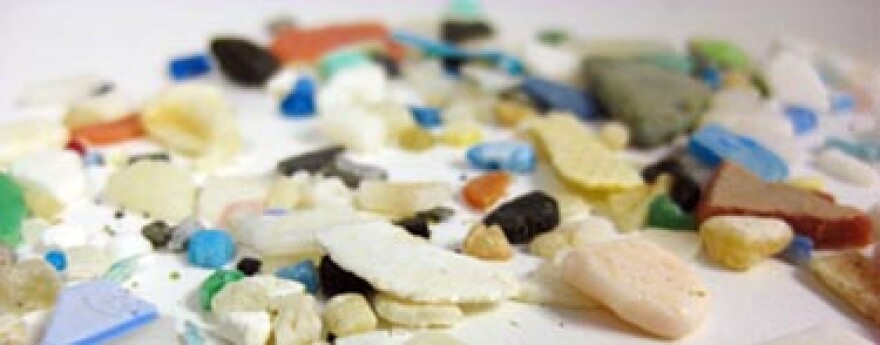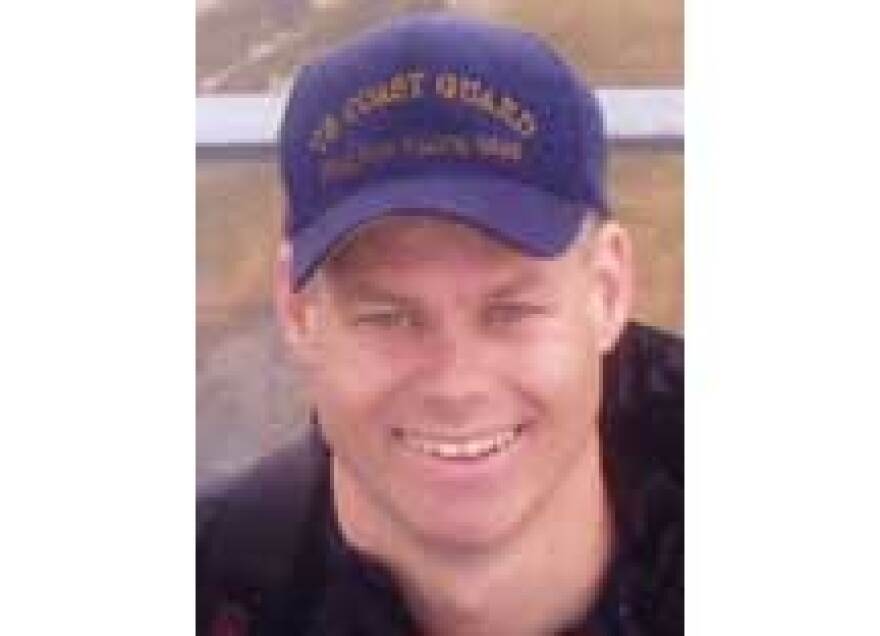When it comes to the future of New England’s fisheries, questions are raised about the health of the ocean itself. Especially when it comes to plastic. One of the many people concerned about the health of our oceans is Jeffrey M. Brodeur. He is a communications and outreach specialist with the Woods Hole Sea Grant program, and runs many beach clean ups based around marine debris and plastic pollution. We asked Brodeur about his work with marine debris, and how he found himself working for Sea Grant.
1 . What is your earliest memory of the ocean and/or fish?
My earliest memories of the ocean aren't so much about the water and coast itself, but the people who exposed me to it and engendered a love for that environment. I grew up visiting family and friends on the Cape and Islands, so for me a day at the beach, a boat ride or a fishing trip was filled with conversation, laughter, exploration and love. Some of those people still sit in the same exact spot of beach during the summer as they did when I was an infant; people have been born and people have died, but the overall circle remains. All those people really planted a seed that I have just built and tweaked over the ensuing years to get to where I am today.
2. How did you go from the Coast Guard to your current work with Sea Grant?
I'm actually still in the Coast Guard; I'm a Lieutenant in the Coast Guard Reserve, working at the First District Headquarters in Boston where I help with Operational Planning and Resources. Over my career, though, I've also done search and rescue, boating safety and maritime law enforcement. Being a Reservist has allowed me to follow one career path in the civilian world, which was journalism and public relations, while doing another part-time. It's been a great experience. I was hired by Sea Grant after working in non-profits in Philadelphia to do communications and my boss told me to find an issue I was passionate about and run with it. I leaned toward both commercial fisheries issues and marine debris based strictly on personal background and interests and haven't looked back; I'll be forever in her debt for that because I've really been able to become immersed in two fascinating topics that fit with Sea Grant's mission while giving me a chance to have an impact. Plus it gets me out of the office regularly!
3. What is the most challenging part of studying marine debris?
For me, it's that it never stops coming. Every time I go out, there's trash to be picked up of some sort, even if I was at a particular location just a short time previously, so that can be a bit frustrating. I really have to tell myself that every little bit helps and that what we take off during a cleanup would probably stay there for who knows how long degrading if we hadn't removed it. I also wish people would realize how pervasive it is; yes, it's perhaps not the biggest issue we're facing, or even the biggest environmental issue, but it's having an impact on humans and marine life and that impact is significant.
4. Why draw a distinction between marine debris and plastic pollution?
That's a big discussion within the marine debris community itself, and that discussion is often quite passionate. The official definition of marine debris is "any persistent solid material that is manufactured or processed and directly or indirectly, intentionally or unintentionally, disposed of or abandoned into the marine environment or the Great Lakes." So although plastic is the prime "persistent solid material" we find, it's not the only one, hence the term marine debris.

5. What worries you the most about the future of New England Fisheries?
When you talk about fisheries issues, you're very often not talking about fish, you're talking about human beings and I worry sometimes that people pick their position and decide they're not going to budge from it, come hell or high water. I'm not sure that's productive to finding real solutions, so I hope real conversations continue to take place. I also have a deep fondness for history and culture, and I'm concerned we're losing a part of our heritage. Working waterfronts and all the associated industries that go along with them are disappearing, and once they're gone, they're gone for good. And again, we're talking people - families and their histories.
6. What makes you most hopeful for the future of plastic pollution?
I'm excited other people much smarter than me are working diligently to address the issue in a more tangible way, either through science, policy or innovativeness, that might lessen the impacts we're seeing now. Once you get involved in marine debris, you're a little hooked on the issue, and there are lots of passionate folks out there who will make a difference moving forward that I'll be able to see in my work in the field on the Cape and Islands. I also love to see that to young people, reduce, reuse and recycle is the norm rather than the exception. Three-year-olds that pick up plastic cups at the beach and know instinctively that it should go in the blue bin rather than the black can bring me hope!









